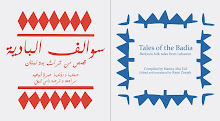A few days ago, Marcy sent me a link to a post by the
farmland grab blog. It was a press release (English and French) taken from AFP
talking about Gulf Arabs buying land in Palestine, and somehow presenting it as land grab.
I support the land grab cause. I have posted several times on the issue (just search "land grab" on this blog) and I have written about it in Arabic in Al-Akhbar. Until this incident, I had a link to the Land Grab site on this site. I had been approached by one of the administrators who had sent me the logo and the hyperlink and I had agreed to link (which I rarely do). It sounded like the thing to do: the blog, according to its own documentation
"
contains mainly news reports about the global rush to buy up or lease farmlands abroad as a strategy to secure basic food supplies or simply for profit. Its purpose is to serve as a resource for those monitoring or researching the issue, particularly social activists, non-government organisations and journalists."
The farm land grab movement is important, because it documents large scale purchases of land in poorer nations by rich food insecure nations. This is dangerous because it can lead to the neo-colonization of poor countries, and to the production of export food by poor people who will remain hungry because they will not have access to the food they produce. After the 2006-2007 food crisis (which continues to evolve), oil-rich Gulf nations started to look at this type of investments in order to ensure that they will have access to food in an ever thinning world commodities market.
The post I am talking on the farmland grab blog was their first ever on Palestine. This in itself is surprising because Israel is the uncontested world champion all categories in land grabbing. This selective blindness when it comes to Palestine is a common problem with activists especially from the liberal left who hesitate before taking position on Palestine. So Palestine becomes this big black hole that is off the radar. I am NOT referring here to the motives of GRAIN or the land grab site, because I have not discussed them with them, I am just noticing. I blogged on this issue
before when posting something from New Internationalist
I used to like this magazine and subscribe to it-20 years ago- in the UK. Then I found out that they were so wishy-washy about Palestine, and that their radicalism when it came to economic issue turned into mushy pea soup when it came to Zionism. They once had a special issue on refugees in the late 1980's without a mention of the Palestinians. I wrote a letter that was never published.
And I have faced the same problem with Slow Food, of which I am a member.
I found the landgrab post to be so outrageous that I went to the site to leave a comment. Marcy had beaten me to it, and expressed clearly her disappointment and upset. There were two long comments on the site, clearly drawing on historical facts and explaining that if "Gulf Arabs" (probably Palestinians settled in the Gulf) were purchasing land in Palestine, they were just buying back their land from the Zionists who had stolen them. In any case, this issue would not fall under the land grab category as described in the site, as the purpose is not "to secure food supplies": the areas we are talking about are minuscule, and certainly not destined to farming.
I wrote an email to the person from farmlandgarb.org who had contacted me telling him about the issue and informing him that I was going to remove the link to the farmlandgrab site from my blog. I got an automatic reply telling me that he is on vacation. I went back to the site to check for more comments, and both the English and French posts had been removed without explanation. Check for yourself
http://farmlandgrab.org/6971
So Marcy and I decided to start a new blog to document Zionist Land Grab, a daily phenomenon in Palestine. Here's the address:
http://landtheft.wordpress.com/
Contributions are welcome.












+081.jpg)


